How Switzerland froze when the Berlin Wall came down
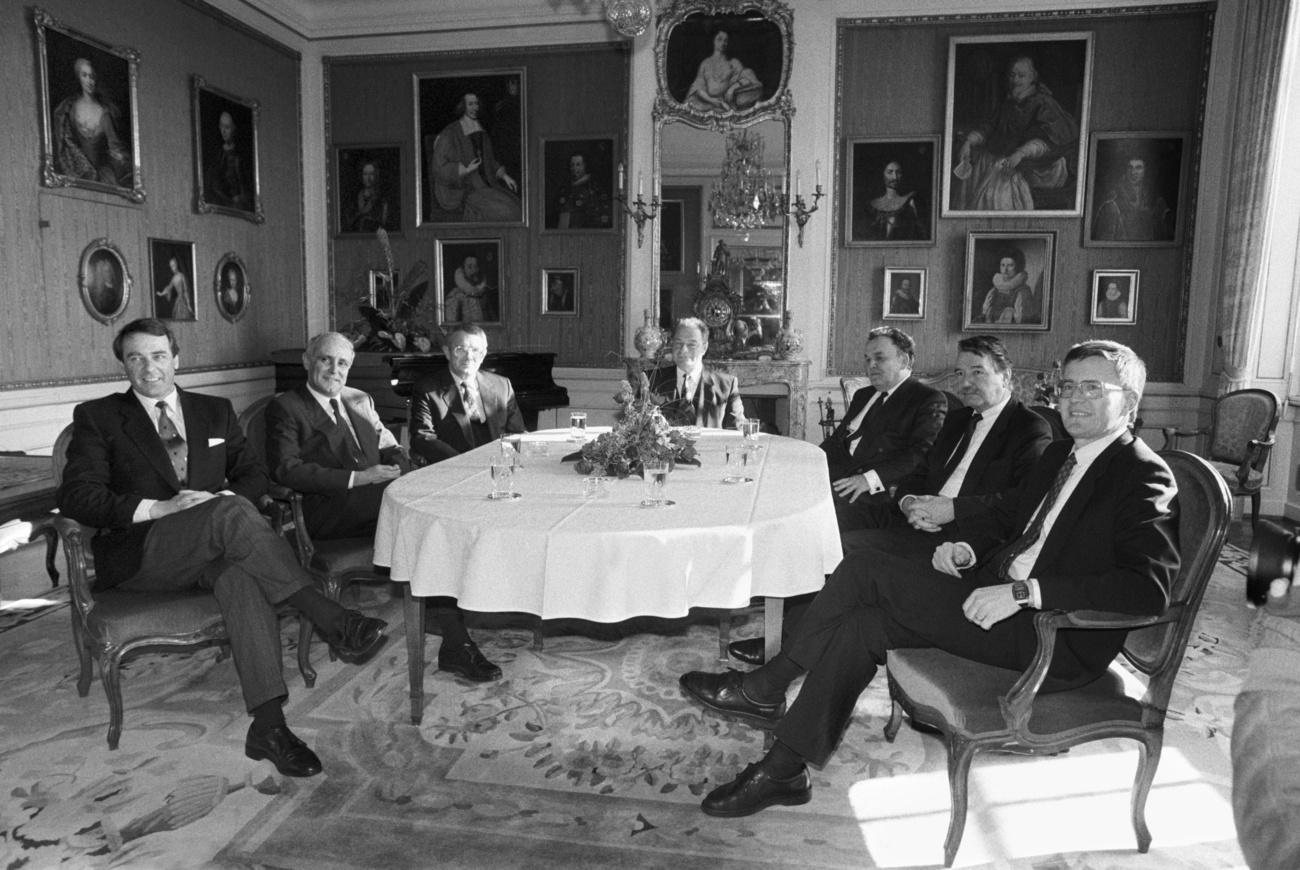
Swiss politicians kept a close eye on the fall of the Berlin Wall exactly 30 years ago, but the mood of celebration was mixed with a sense of clumsiness and helplessness. Faced with the end of the Cold War, many people didn’t know what to say or do.
On November 9, 1989, the Iron Curtain separating East and West Germany turned from a death strip into an old concrete wall. The joy was also great in Switzerland: radio stations repeatedly played David Hasselhoff’s song Looking for Freedom, which became the anthem of the end of East Germany.
Standing in front of people clambering over the Wall, Swiss public television’s Berlin correspondent spoke excitedly of a “historic moment”. Many newspapers celebrated the opening of the East German border as the “twilight of the gods” of post-Communist Europe.
They were proved right: in the following weeks peaceful revolutions spread through the majority of Communist countries in Europe.
Hesitant reaction
Officially, however, Switzerland reacted in a somewhat reserved manner to the fall of the Wall. Jean-Pascal Delamuraz, who held the rotating Swiss presidency that year, might have reaffirmed Switzerland’s “positive reaction” to developments in the German Democratic Republic, but one day earlier Foreign Minister René Felber had judged the events unworthy of a press conference.
“Something important happens every day in the world – Mr Felber can’t comment on everything,” said his spokesman.
A few months later Felber warned of a “menacing Germanisation of Europe” following the reunification of Germany. Ten years later he said the fall of the Wall had simply caught him by surprise.
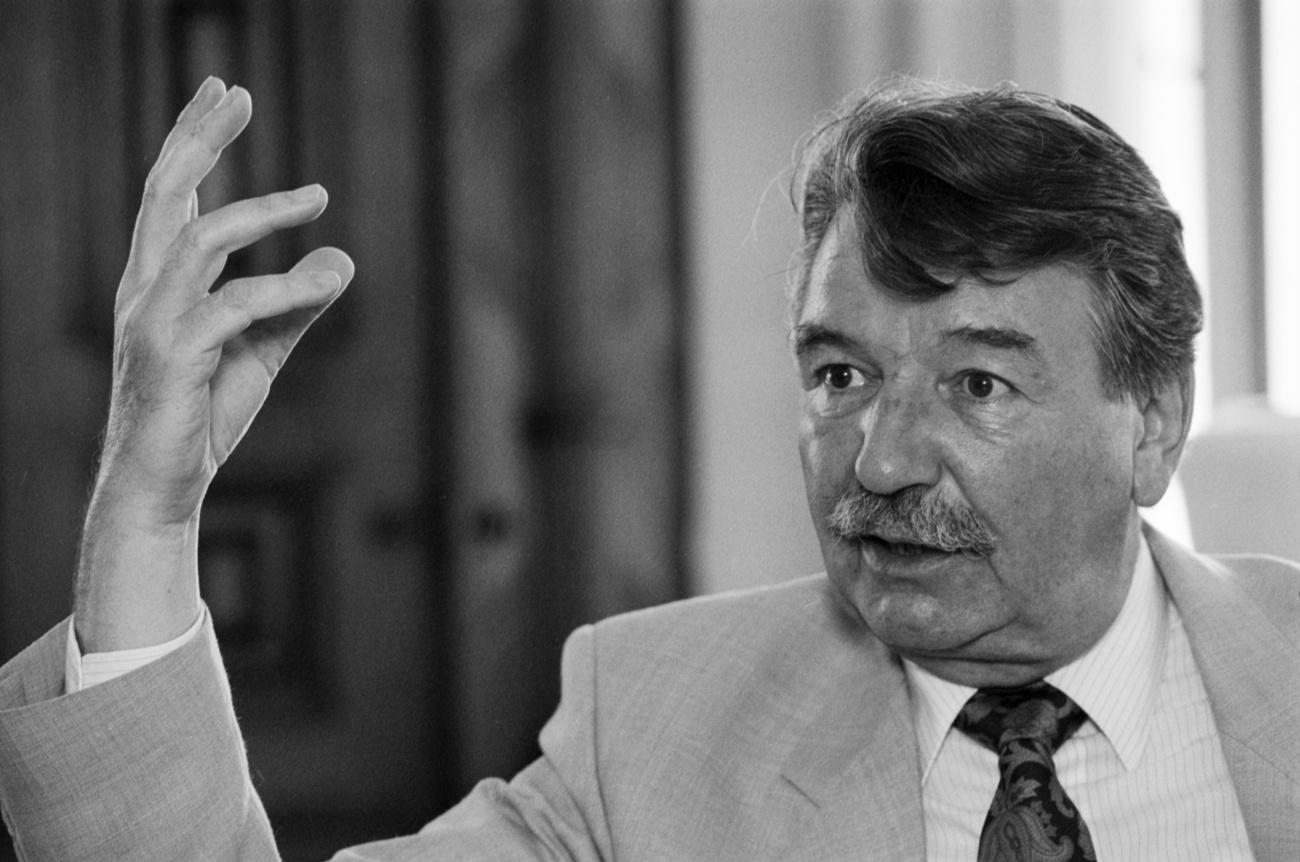
In mid-December 1989 there was brief talk in parliament – following several parliamentary questions – about the historical significance. There was gentle applause but no debate; the question of how Switzerland would respond to the opening of the border remained unanswered since it was already 9pm.
The Neue Zürcher Zeitung was irritated: “The lack of a sense of priorities is the reason why the House of Representatives, with no consideration for time lost arguing over trivial sums for the budget, is only discussing important questions about the future late in the penultimate day of the session.”
‘Helpless’
On the 20th anniversary of the fall of the Wall, no Swiss delegation was invited to Berlin. Switzerland’s incapacity for historical pathos had been noticed.
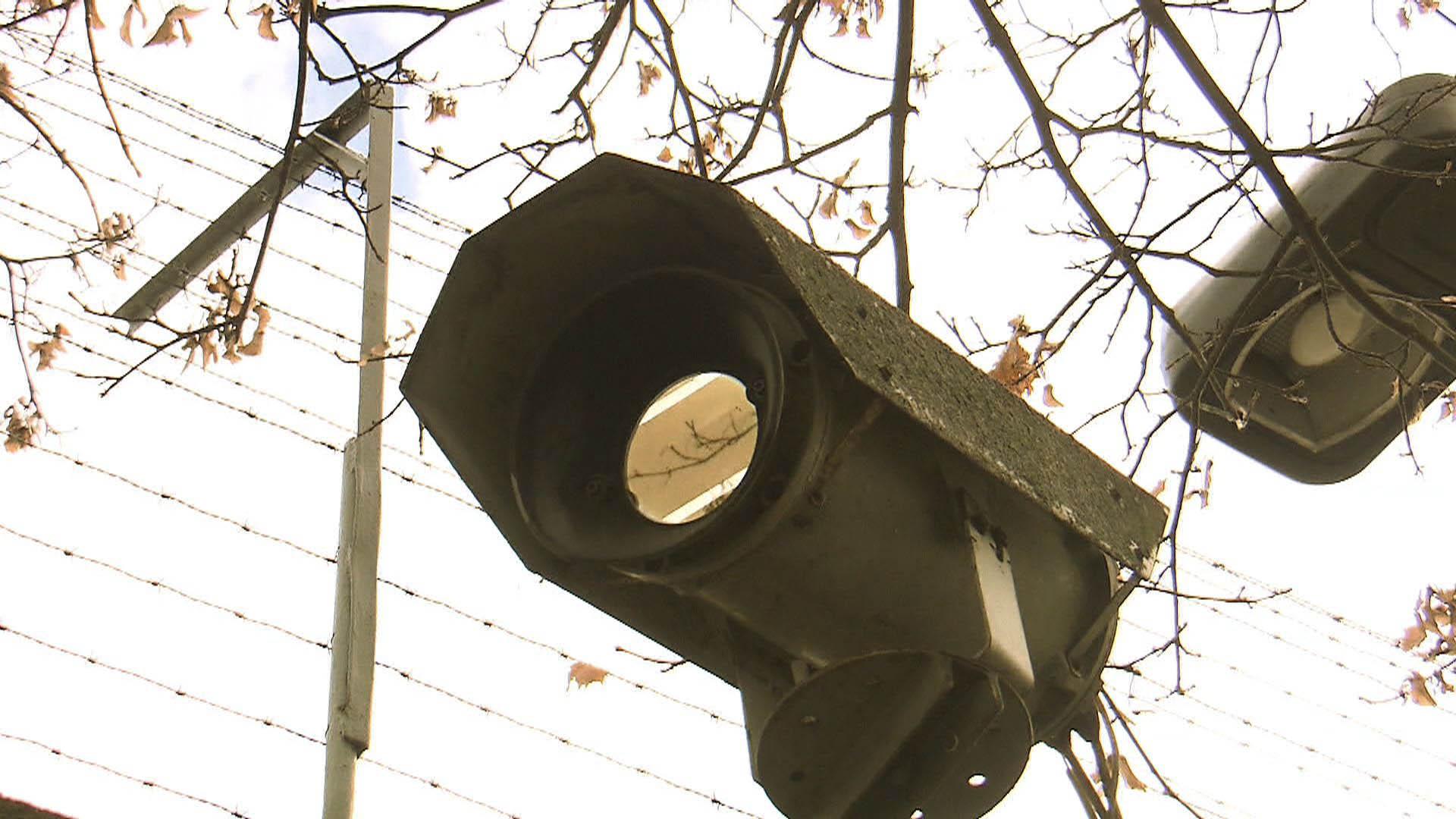
More
Did the Swiss help communist East Germany?
“Switzerland is watching helplessly as Europe grows together,” wrote Der SpiegelExternal link, the German weekly news magazine, at the end of 1989. “The Swiss still struggle when ideas – rather than loans – are called for.”
Former cabinet minister Adolf Ogi’s memory of how he reacted to the fall of the Berlin Wall is symptomatic of this almost worrying view on events. While other celebrities were gushing to newspaper Le Matin about the fall of the Wall, Ogi said drily that he had turned the television on and immediately understood “that from now on Switzerland too would have to redefine its position in the world”.
Mistrust
The Swiss military clocked the threat of the change only weeks later, when an astonishing 35% of voters supported a popular initiative to abolish the army.
While the Berlin Wall was being pulled down, 44,000 army conscripts were on a military exercise lasting weeks – a mock battle between “Greenland” and “Yellowland”.
The army top brass didn’t trust the celebrated opening up of the border. At the end of the 1980s renowned Swiss strategy experts were still convinced that perestroika – the restructuring of Soviet political and economic systems – was just a part of the psychological war against the West.
The least trusting remained the anti-Communist rightwingers, who one would have thought would be dancing with joy. A good three months after the fall of the Wall, the right-wing newspaper Schweizerzeit published a melancholic poem containing the lines: “The celebrations are full of life / But perhaps they are premature / Since the red plague is still rife.”

More
Following the trail of the Berlin Wall
(Translated from German by Thomas Stephens)

In compliance with the JTI standards
More: SWI swissinfo.ch certified by the Journalism Trust Initiative









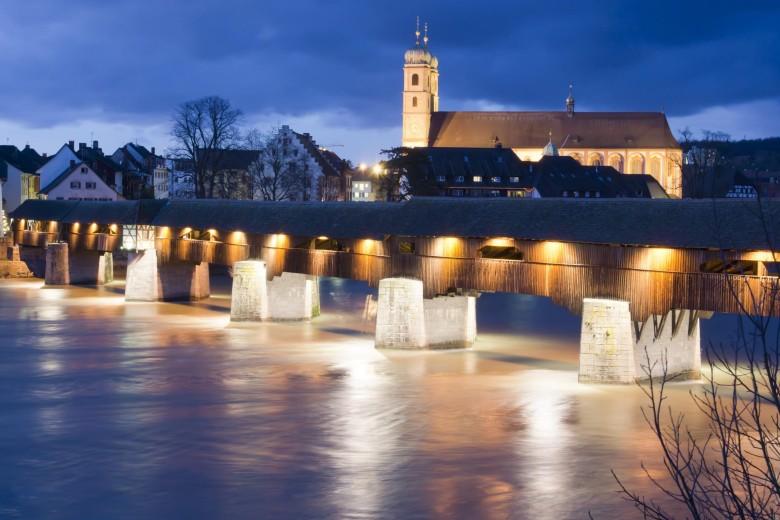


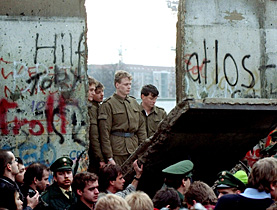
You can find an overview of ongoing debates with our journalists here . Please join us!
If you want to start a conversation about a topic raised in this article or want to report factual errors, email us at english@swissinfo.ch.